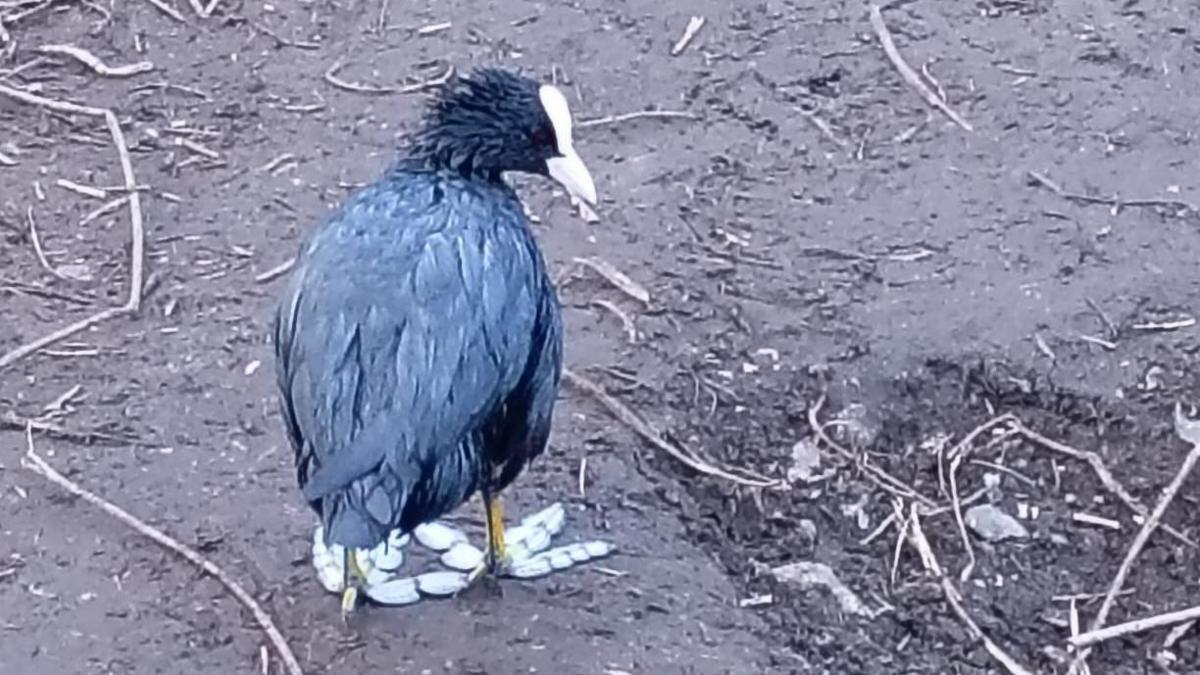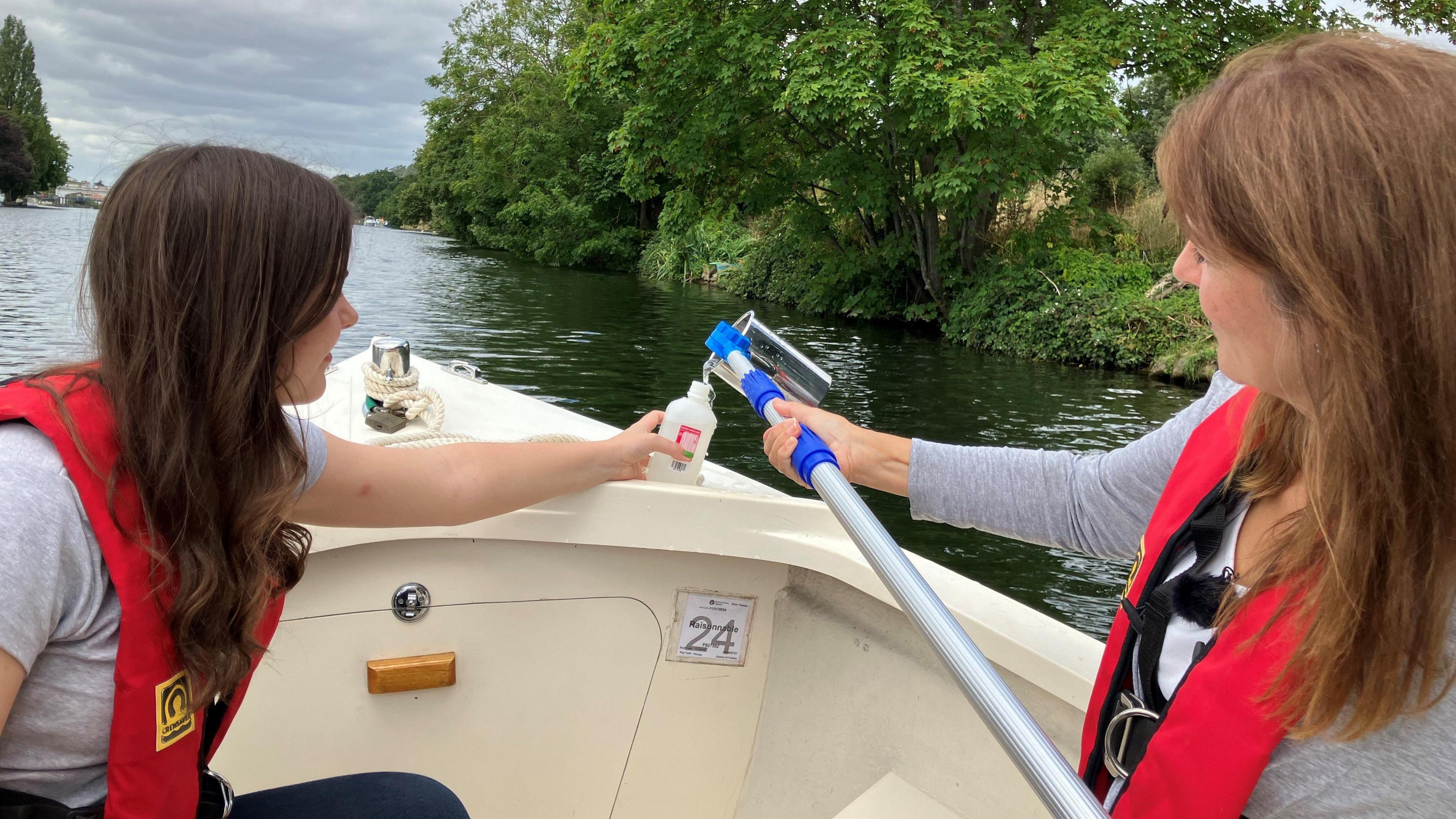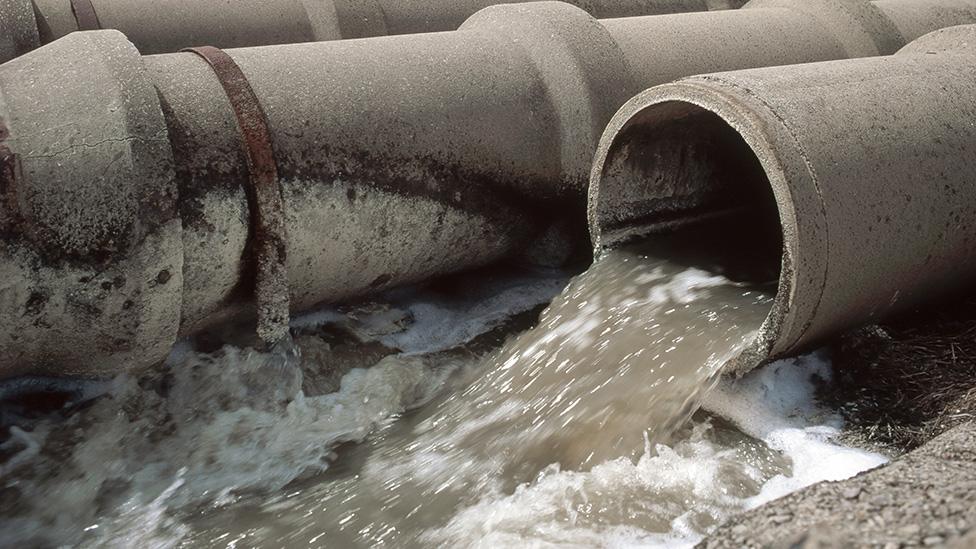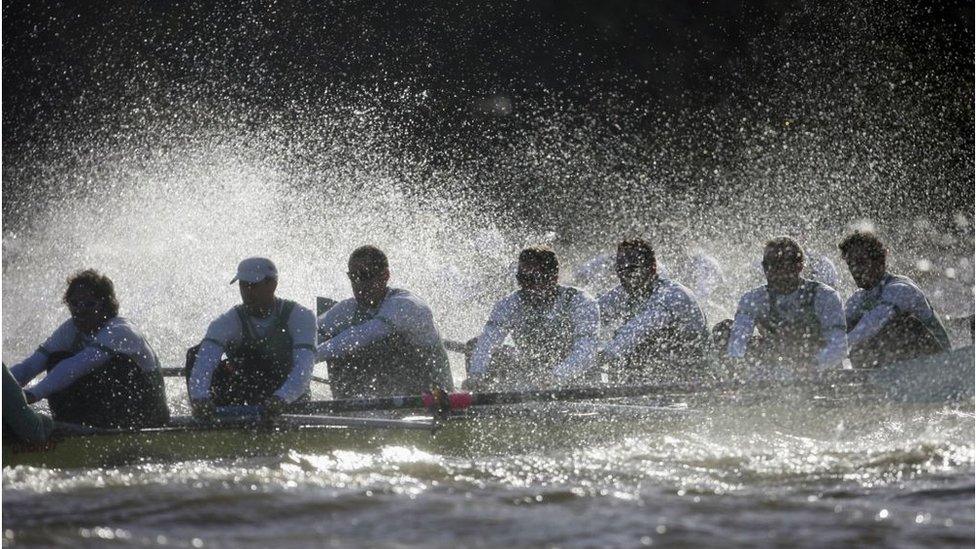Wildlife hit as River Wandle polluted by diesel

Wildlife on the River Wandle have been covered in oil after a diesel spill
- Published
Attempts are being made clean up a diesel spill on a stretch of the river Wandle that has also spread to a nature reserve in south-west London.
Merton Council said London Fire Brigade (LFB) was on site on Tuesday afternoon to contain the spill and Thames Water was trying to clean the waterway.
The Watermeads Nature Reserve in Mitcham, owned by the National Trust and situated on the Morden side of the river Wandle, has been affected by the pollution.
The Environment Agency has said it has put in place measures to stop the leak, "with the pollution source suspected to be a bus depot storage tank in Thornton Heath, Croydon".
Contain the spill
It added that around 4,000 litres (about 879 gallons) of oil spilled into surrounding surface water drains and affected the Wandle, with the river likely to be impacted from Beddington to Wandsworth over the coming days.
Local MP Bobby Dean said on X, external that "a major diesel spillage has left wildlife covered and caused untold damage to the waterway".
The Lib Dem MP for Carshalton and Wallington, said local residents "have reported to me an environmental disaster".
He added: "I'm in touch with the Environment Agency and will make sure those responsible are held to account."
A spokesperson for Merton Council said: "The council is aware of a diesel spill from Croydon that has polluted parts of the River Wandle – particularly in Watermeads Nature Reserve, Mitcham – with some wildlife covered in oil."
The Environment Agency will lead the investigation and the council will provide updates, the spokesperson added.
People have been asked by the local authority not to touch the water, allow pets into the water or feed wildlife in the waterway as it will "encourage them to ingest contamination".
Listen to the best of BBC Radio London on Sounds and follow BBC London on Facebook, external, X, external and Instagram, external. Send your story ideas to hello.bbclondon@bbc.co.uk, external
- Published22 August 2024

- Published10 November 2023

- Published27 March 2024
